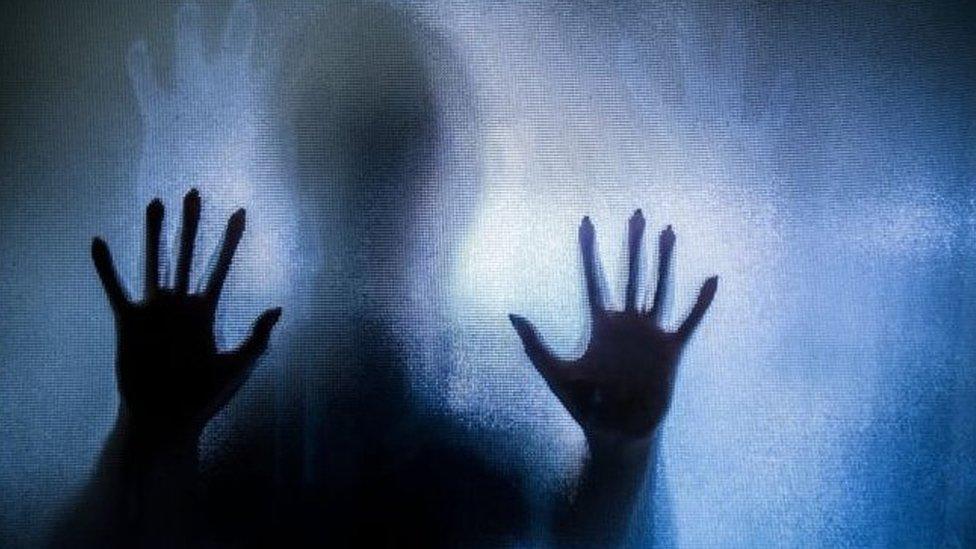£1.5m funding boost to support human trafficking victims
- Published

Charities which are receiving extra funding have reported a record rise in human trafficking referrals
Increased funding has been announced for services supporting victims of human trafficking.
Two charities and an NHS support facility will share £1.5m.
Between 2018-19 there was a 125% rise in official referrals identifying victims of human trafficking and ensuring they receive the appropriate protection and support.
The justice secretary said that in 21st century Scotland it was not acceptable that people are treated as commodities.
Humza Yousaf made the announcement as the annual progress report and statutory review , externalof Scotland's Trafficking and Exploitation Strategy (TES) was published.
Between 2013 and 2019, the number of potential trafficking victims identified per year in Scotland rose from 99 to 512.
Referrals to the National Referral Mechanism (NRM) increased by 125% between 2018 (228) and 2019 (512).
The NRM is a framework for identifying victims of human trafficking and ensuring they receive the appropriate protection and support.
The charities which received additional Scottish government funding were Trafficking Awareness Raising Alliance (TARA), which was awarded £581,252 and Migrant Help which will receive £922,065.
Stephen Newton, regional trafficking services manager for Migrant Help in Scotland welcomed the increased funding.
He said: "Last year saw a record increase in the number of trafficking victims referred to our service.
"The increased funding means we have been able to recruit additional staff, allowing us to maintain service provision to our expanding base of clients."
Extra support
Bronagh Andrew, of TARA, said the extra cash would allow it to increase support for women who have experienced trafficking for commercial sexual exploitation.
She said: "Women have told us that this support needs to be ongoing and that they value the assistance they receive.
"The additional resilience which this funding has given us means we can provide comprehensive support to more women and continue to raise awareness of the exploitation of women across Scotland."
There was also a grant of £120,000 to NHS Greater Glasgow and Clyde to continue providing a national psychological trauma support service to adult trafficking victims at The Anchor.
Mr Yousaf said victims of human trafficking are some of the most vulnerable adults and children in society, and are targeted by organised criminals who prey upon their vulnerabilities.
He said: "Since Scotland's first Trafficking and Exploitation Strategy was launched in 2017, this dreadful crime has been identified in every area of Scotland.
"Trafficking victims are often hidden in plain sight - including nail bars, car washes, take-away restaurants or hotels."
He added it was simply not acceptable that in 21st century Scotland people were being bought, sold and treated as commodities.
The government's annual progress report and strategy review says in the past year victims' entitlement to assistance and support had been strengthened and guidance for businesses, health workers and local authorities had been developed.